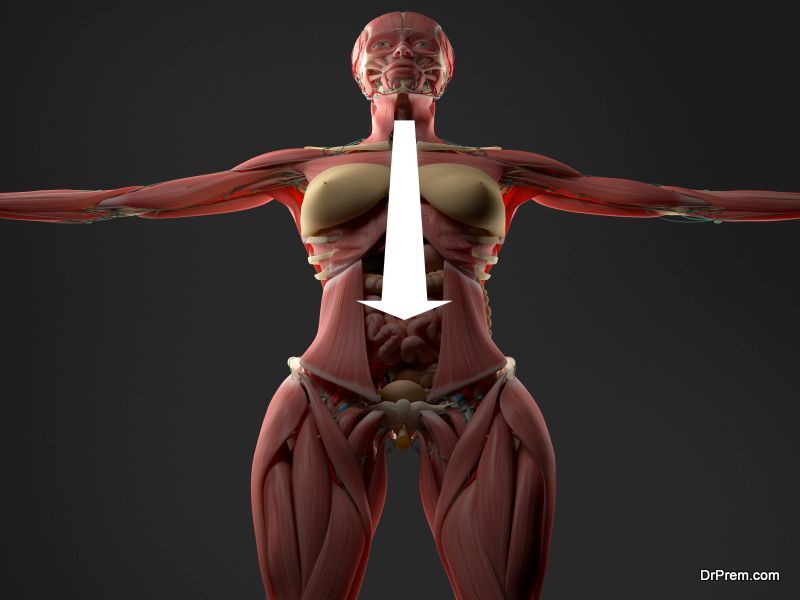Turning 65, for many people, means entering the golden years. Your children (if you have any) are grown and it’s time for you to start enjoying the life you’ve worked so hard for. Retirement is around the corner and this is, theoretically, the time of your life. To ensure that you can enjoy these years as intended, you should expect a few physical and mental changes. Knowing what’s ahead can help you prepare and keep you from being blindsided. Let’s take a look at four common things that happen after you blow out the candles on your 65th birthday!
1. A Change in Your Dietary Needs

You worried about your diet in your 20’s, then again in your 30’s and as you approached the big 4-0. While we hate to be the bearer of bad news, the truth is, your diet will always be important. The foods you fuel your body with directly impact your overall health, well-being, and both physical and mental state. After the age of 65 your body’s needs will change, and your diet must change accordingly. Sadly, your metabolism will slow down at this point in your life. In fact, your metabolism starts slowing down after the age of 30. This makes losing weight more difficult. But as you age, your body also loses muscle mass and with it, vital nutrients. If you’ve never taken a vitamin before, now’s the time! Consider supplements like vitamin B12, calcium, vitamin D, and omega-3 fatty acids. You can get these helpful ingredients from your diet as well.
2. Tests, Tests and More Tests
Yep, get ready to feel like a pin cushion! Unfortunately, turning 65 means getting routine tests and exams more frequently than ever before. This is all in an effort to find, diagnose, and treat any medical complications before they become problematic. Here are just a few of the tests you can expect:
- Cholesterol check (every 1-5 years)
- Blood glucose (every 3 years)
- Bone density (every 2 years)
- Colonoscopy (every 5-10 years)
- Skin check (annually)
- Eye and hearing tests (1-3 years)
These tests are in addition to getting vaccines each year, which include the flu, pneumonia, and Herpes zoster to help prevent shingles. While some might find these tests tedious and inconvenient, you need them to ensure you stay healthy and active during your retired years. Check out this list of CCRC communities that might be exactly the lifestyle you’re looking for!
3. Mental and Emotional Changes
 Not all the changes you’ll experience after age 65 will be physical, or even obvious to the naked eye. Sure, people might notice your wrinkles and graying hair, but what about your change in disposition? Your lack of motivation to socialize or leave the house? Depression affects more senior citizens than you realize. And for a host of reasons. It’s common for people over the age of 65 to face their own mortality. After all, it is on the horizon. Many seniors also become very lonely as they age. If they have grown children, many move away to other states or areas of the country. Friends slowly begin to die off or grow ill. It’s more difficult for them to get around. Chronic pain is a real concern and causes depression in even young, otherwise healthy individuals. It’s okay to feel fear and doubt about the future, but it’s also important to talk to your doctor, family, or a psychologist about these emotions.
Not all the changes you’ll experience after age 65 will be physical, or even obvious to the naked eye. Sure, people might notice your wrinkles and graying hair, but what about your change in disposition? Your lack of motivation to socialize or leave the house? Depression affects more senior citizens than you realize. And for a host of reasons. It’s common for people over the age of 65 to face their own mortality. After all, it is on the horizon. Many seniors also become very lonely as they age. If they have grown children, many move away to other states or areas of the country. Friends slowly begin to die off or grow ill. It’s more difficult for them to get around. Chronic pain is a real concern and causes depression in even young, otherwise healthy individuals. It’s okay to feel fear and doubt about the future, but it’s also important to talk to your doctor, family, or a psychologist about these emotions.
They say age is just a number. You can be a shining example of this by understanding and accepting the changes your body and mind will undergo after the age of 65. These are just a few things to expect, but don’t forget about the freedom, relaxation, and peace that also accompany retired life!
Article Submitted By Community Writer




